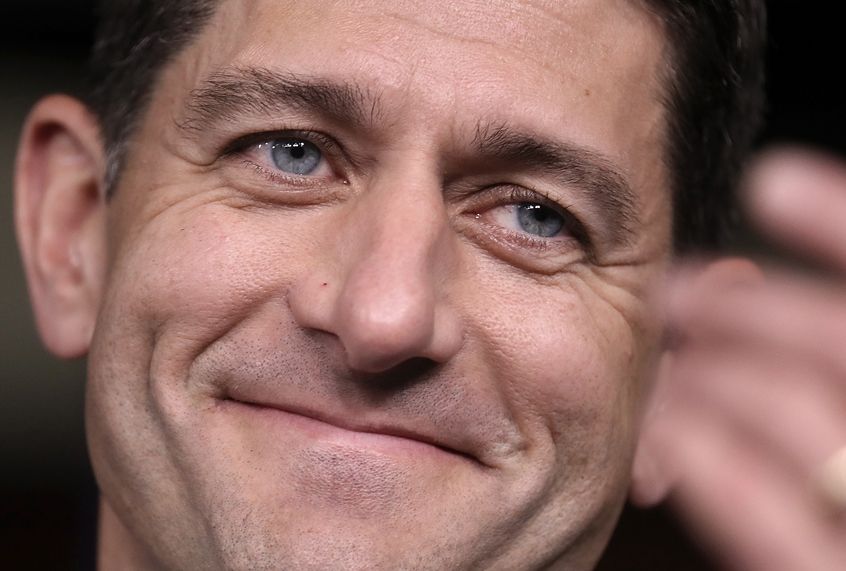Aristotle defined politics as “matters relating to the city.” The Athenian philosopher used “city” as a substitute for the collective. In the United States, just as in any sophisticated society, one of the most important communal matters is the collection of money from the people, and the use, allocation and distribution of that money.
April 15 is not a day that most Americans circle on the calendar with the joy of anticipation. Supreme Court Justice Oliver Wendell Holmes appraised taxes as “what we pay for civilized society.” It does not require much imagination or rigor to identify governmental examples of “waste, fraud and abuse,” as Republicans like to say, but Holmes’ wisdom remains resonant, even elementary.
In contemporary political discourse, any celebratory, or even nuanced, analysis of taxation would suffer a heretical inquisition. Even most liberals celebrate the nobility of “easing the tax burden” for working families, while leftists advocate escalating taxes on the rich, but refuse to acknowledge that, if America were to truly transform into a European-style social welfare state, middle-class income earners would also pay more in taxes, and rightly so.
Unlike citizens of Sweden or France, Americans feel that their taxes do not pay for much of anything, including civilized society. The conventional grievance against taxes is both legitimate and inaccurate.
Many states would not survive without federal subsidy. One of the rich and untold ironies of American life is that most of the states dependent on federal aid are Southern shades of red, full of inhabitants waving “Don’t Tread on Me” flags while they argue for local control against big government tyranny. Big government tyranny helps to fund their highway systems, infrastructure, educational systems and social assistance policies. In my home state of Indiana, residents recently collapsed into conniptions of shock and rage upon discovery that cuts to Medicaid would remove essential money from special education programs in public schools.
The federal government, despite reports to the contrary, is not Satan’s operational headquarters.
It is, however, largely detached from its individual taxpayers. When most people consider their financial status, they do not pause to reflect on the local efficacy of a highway expansion project or even the crucial existence of a fully functional educational program for children with developmental disabilities. They think in terms of losses and gains for themselves and their own family.
The Norwegian, even the Canadian, can justify relatively high tax rates with the knowledge of access to excellent health care, opportunities at tuition-free public universities, and readily available and affordable childcare. She can consider her routine use of safe, efficient and comfortable public transportation, and she can recall the joy of a culture with a vibrant public arts program. She can feel grateful for civilization.
The American watches a percentage of his income vanish on every pay stub, but still has a high health insurance premium and an even higher deductible, makes a student loan payment every month and takes into account large fees for the private daycare center at the opposite end of town.
The lack of civilization in public policy encourages crassness and crudity in private behavior and discussion. Basic etiquette should forbid public discussion of personal earnings, but America has never allowed vulgarity to prevent the exercise of its impulses. Without asking, I myself have had to endure acquaintances informing me how much, or how little, they will save due to Trump’s tax cut. Is there any conversational topic more boring?
One can rationalize Americans forever double dipping their potato chips and putting their feet on the table by associating their uncouth outbursts with the tragedy of low political expectations.
If Americans had larger political imagination and ambition, along with more comparative knowledge, they would insist on universal health care, affordable universities and complimentary childcare. Instead, they endure the condescension of Paul Ryan smugly grinning as he promises that a family of four will save $1,182 because of the GOP’s tax beneficence. If we are going to tolerate vulgarity, we might as well fully commit. Ryan’s savings, averaged out, amount to $98.50 per month. This is not nothing, but neither does it come close to covering a month of daycare for one child and the parent’s student loan payment.
The Republican tax plan is the equivalent of giving a man with a 20-mile commute to work whose car has broken down a new pair of running shoes.
Polls currently indicate that the majority of Americans are not falling for the ruse, and by some miracle, the typically pitiful Democrats are actually winning the public debate. Republicans hope and predict that attitudes will change when Americans notice that their tax returns are slightly larger than the previous years.
They are also parading various banners of cynicism from corporate lords of the manor. AT&T, Comcast and several other companies have announced bonuses for employees, making the dubious claim that they were only made possible due to tax relief. Union representatives for AT&T employees were already in the process of negotiating holiday bonus payments before the passage of tax reform.
The political expectations of many Americans have fallen so far into the sewer that one of the nation’s two major political parties is now actually arguing that the best government can do is bribe modern day merchant princes into acts of charity and mercy.
How long before they, and more important, we, decide that mercy is for the weak?

